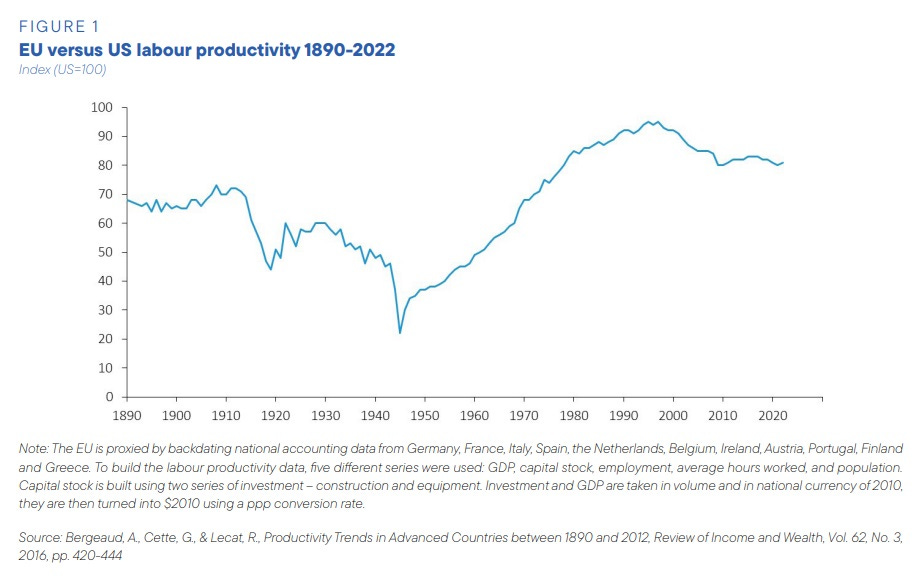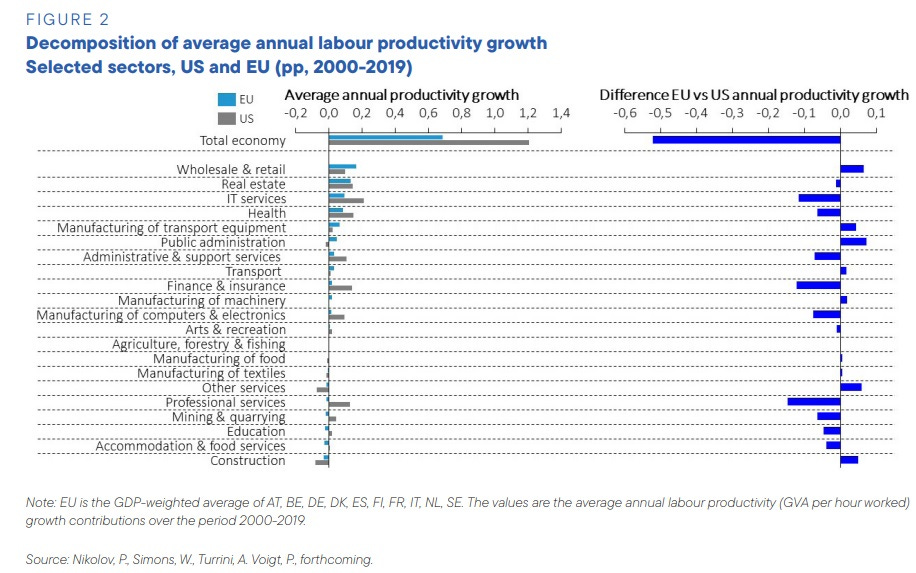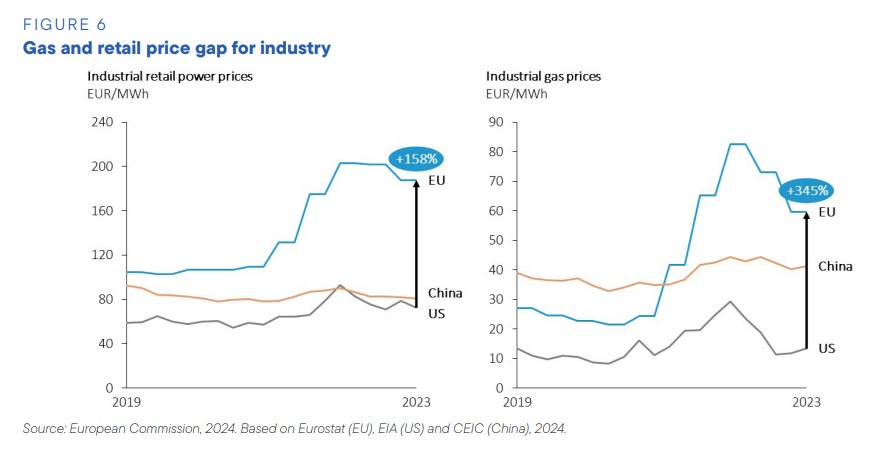Four thoughts on Eurosclerosis
Europe is losing the productivity race. Can it get back in the game?

The question of why some rich countries fall into economic decline, and how they can pull themselves back out again, is increasingly important. These stagnations are increasingly common around the world — it’s possible to argue that Germany, Japan, the UK, Italy, France, and Canada all fall into this category. These are all rich, first-rank economies with long and stories histories of successful companies and technological innovation. Now they all seem to be drifting into stagnation at the same time.
European countries are worried about this, and they should be. A long-awaited report to the European Commission by Mario Draghi — an economist and former prime minister of Italy — makes for grim reading. The gap in living standards between the EU and the U.S. is large — in general, Europeans are less than 3/4 as rich as Americans. And contrary to popular belief, only a small amount of the gap can be accounted for by the fact that Americans work more:

Europeans simply produce less for every hour of work than Americans do. And the gap is growing — in the mid-90s, the EU’s productivity was about equal to America’s, but in the three decades since, the countries that were part of the EU at that time have fallen significantly behind:

The “sick man of Europe” is just…Europe.
Draghi’s report — there’s a 69-page overview, which I read, and a 328-page list of specific recommendations, which I skimmed — focuses on three main challenges for European “competitiveness”. These are:
Lack of innovation
Expensive energy
Vulnerable supply chains and weak defense industry
The third of these is obviously important, but it’s more of a focus on the future than an explanation of past trends, and the solutions Draghi comes up with are very similar to what America is already trying to do. So I’m going to focus on the first and second of these.
The “lack of innovation” is basically the old question of “Where’s the European Google?”, plus the problem that European companies don’t use enough IT. Draghi points out Europe’s lack of big new tech companies, and shows that Europe’s lagging productivity growth is concentrated in IT and sectors like business services that make heavy use of IT:

On the energy front, Draghi points out that Europeans pay a lot more for electricity and natural gas than Americans or Chinese people do:

Draghi’s report is a needed wake-up call for a sleepy, complacent region that has viewed itself for too long as a beautiful, unchanging “garden”. It’s chock full of useful technical suggestions, especially on energy policy. Many of its basic ideas — harmonizing regulations, investing in AI, increasing R&D spending, hardening supply chain vulnerabilities, and so on — seem spot on. I hope everyone in Europe reads the report and takes its basic message to heart.
But I thought I’d offer an outsider’s perspective, by listing a few issues I had with the report. These are either things I think the report missed, or things that seem like they’ll be stumbling blocks for Draghi’s ideas.
1. What about aging?
When I see a productivity divergence between rich countries, my first reaction is to think about population aging. There’s pretty good evidence that aging reduces a nation’s growth, both through the increased dependency burden, and through slowdowns in productivity. Since the mid-90s, Europe’s median age has gone from 2 years older than the U.S. to 4 years older:
Surprisingly, Draghi’s report doesn’t mention aging at all. It does briefly mention population decline, which is related, but doesn’t really explain why this is a challenge. Maybe Draghi thinks there’s just nothing to be done about aging — and he might be right — but I did think it deserved more focus as a cause of the U.S.-Europe divergence.
As for how to address the aging problem, that’s something every country is struggling with. But biasing immigration policy toward people at the start of their working lives seems like a start.



